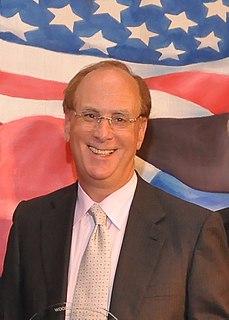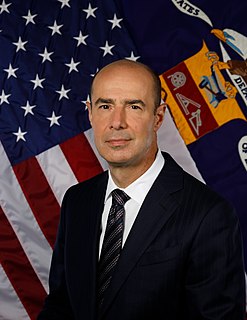A Quote by Richard Thaler
When employees are first eligible for a retirement savings plan, they should be enrolled unless they choose to opt out.
Related Quotes
The simple index fund solution has been adopted as a cornerstone of investment strategy for many of the nation's pension plans operated by our giant corporations and state and local governments. Indexing is also the predominant strategy for the largest of them all, the retirement plan for federal government employees, the Federal Thrift Savings Plan (TSP). The plan has been a remarkable success, and now holds some $173 billion of assets for the benefit of our public servants and members of armed services.
Social Security is an insurance policy. It's a terrible investment vehicle. Social Security has some great benefits. But it was never meant to be a savings plan. So we need to have a national debate. Should this 12.5 percent that we're contributing all go into a Social Security pool, or should half go into a mandatory savings plan?
At the heart of Erisa is the requirement that plan fiduciaries act with an 'eye single' to funding the retirements of plan participants and beneficiaries. This means investment decisions must be based solely on whether they enhance retirement savings, regardless of the fiduciary's personal preferences.
The player option allows me to, hopefully, sign a lucrative deal in my prime, before retirement. If you're in a situation where you've played to a level where you can make more money, then you opt out and you make more money. And if you play really poorly, then you opt in and take the money that's scheduled to be on that piece of paper.



































